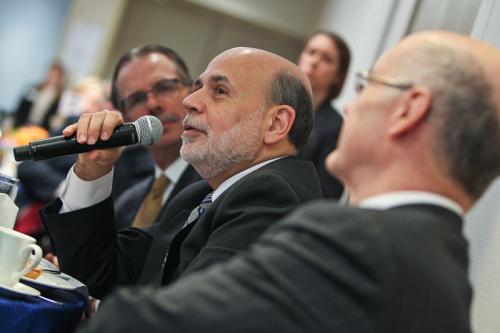The Obama administration has stirred controversy – and stiff industry criticism – for a pending Labor Department rule that would toughen rules governing retirement-finance advisers, requiring nearly all of them to put clients’ best interest first (“the fiduciary standard.”) Currently, stock brokers, among others, are required only to be sure recommended investments are “suitable” for their clients.
Two academics who have studied the way savers and advisers behave – MIT finance economist Antoinette Schoar and Harvard behavioral economist David Laibson – endorse the Labor Department approach.
Schoar’s recent research sent mystery shoppers to financial advisers and found advisers’ economic self-interest and incentives play a big role in the advice they give. In light of that, she endorsed new regulation, and praised the Labor Department approach because it still leaves the private sector a lot of flexibility.
Here’s an excerpt of a conversation between Schoar and David Wessel, director of the Hutchins Center:
Laibson agrees. While the produce rule will have negative unintended consequences, the benefits are far greater than the costs, he said. Here’s how he put it:
Schoar and Laibson spoke at a recent Hutchins Center event “The power of nudge: Policy lessons from behavioral economics.” Video of the entire program is available here.
See more commentary from Brookings scholars on the fiduciary rule.
The Brookings Institution is committed to quality, independence, and impact.
We are supported by a diverse array of funders. In line with our values and policies, each Brookings publication represents the sole views of its author(s).






Commentary
Why Harvard’s Laibson and MIT’s Schoar back Labor Department’s ‘fiduciary rule’ for retirement savings
September 30, 2015